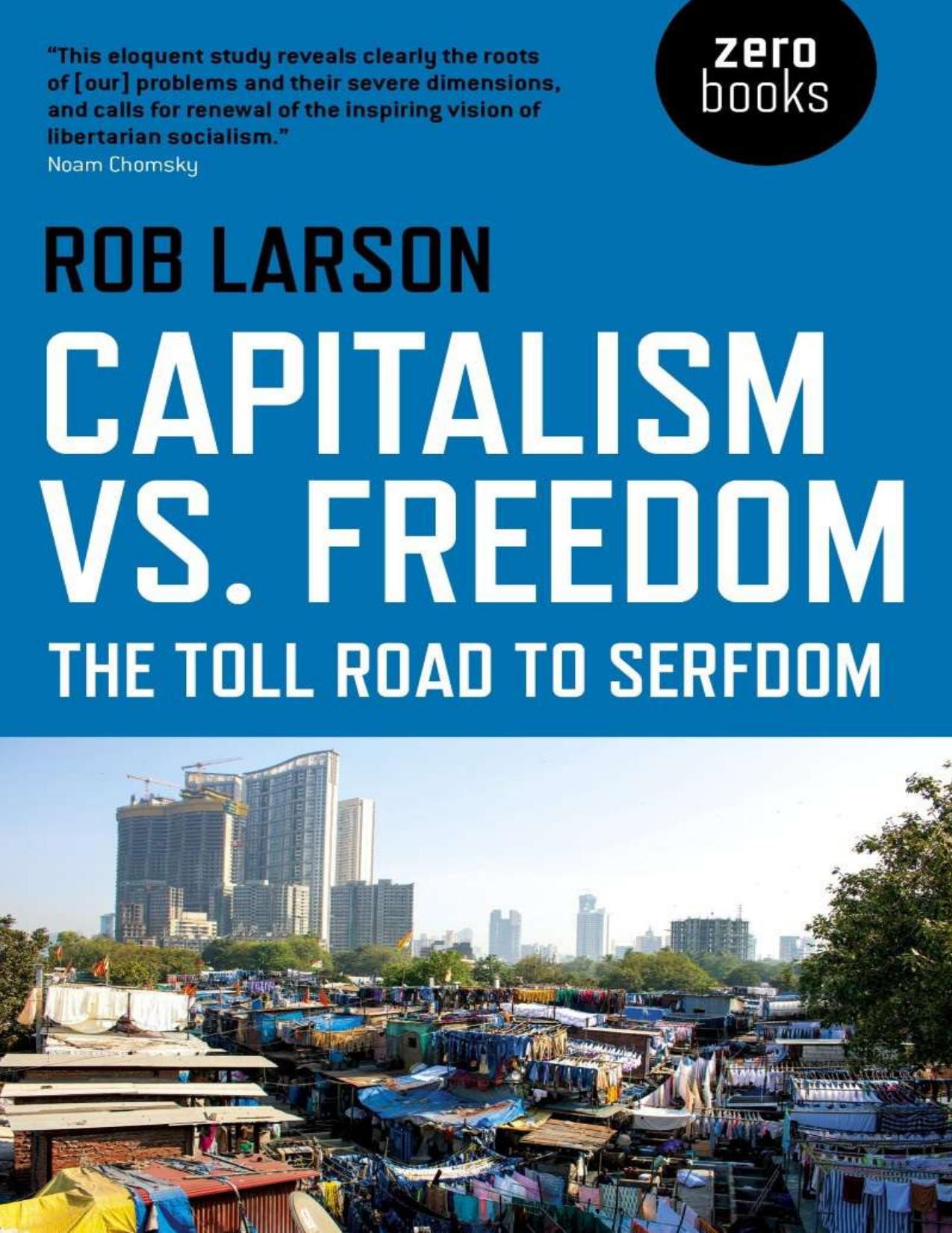Capitalism vs. Freedom: The Toll Road to Serfdom by Rob Larson

Author:Rob Larson [Larson, Rob]
Language: eng
Format: epub, pdf
Tags: Business, Economics, Free Enterprise, Political Science, Political Freedom, Political Ideologies, Libertarianism, Politics, Laissez-Faire Capitalism, Neoliberalism, Capitalism, Non-Fiction
ISBN: 9781785357343
Google: cCNeDwAAQBAJ
Amazon: B07DGM8JQR
Goodreads: 40398718
Publisher: Zero Books
Published: 2018-06-28T23:00:00+00:00
You Say You Bought a Revolution
The tight historical relationship between concentrated economic wealth and state power goes back very far and indeed a lot of world history makes a lot more sense when the strategies of concentrated capital are added to the picture. To explore this broad subject I’ll focus on the US, which is often recognized to be an especially money-driven society, but as we’ll see the principles apply widely.
The fingerprints of money are easily seen on one of the founding documents of the modern era, the United States Constitution. The definitive work on the economics of the Constitution is Charles Beard’s classic An Economic Interpretation of the Constitution, which in detail lays out the economic interests of the delegates to the Constitutional Convention that wrote the document, and the economic patterns of the national reaction to it and its ratification. While criticized for highlighting economic interests rather than the more conventional approach to the document, which focuses on the liberal republican ideals of the founders, Beard has a sturdy response: the founders themselves focused on economic interests heavily in their own debates while writing the document.
Consider, for example, comments by James Madison—the founding father given credit for writing much of the US Constitution—in the Federalist Papers, the series of articles by Madison and fellow founders Thomas Jefferson and John Jay. Madison wrote about the “diversity in the faculties of men,” which meant:
… the possession of different degrees and kinds of property immediately results; and from the influence of these on the sentiments and views of the respective proprietors, ensues a division of society into different interests and parties … The most common and durable source of factions has been the various and unequal distribution of property. Those who hold and those who are without property have ever formed distinct interests in society. Those who are creditors, and those who are debtors, fall under a like discrimination. A landed interest, a manufacturing interest, a mercantile interest, a moneyed interest, with many lesser interests, grow up of necessity in civilized nations and divide them into different classes, actuated by different sentiments and views.14
Download
Capitalism vs. Freedom: The Toll Road to Serfdom by Rob Larson.pdf
This site does not store any files on its server. We only index and link to content provided by other sites. Please contact the content providers to delete copyright contents if any and email us, we'll remove relevant links or contents immediately.
| Anarchism | Communism & Socialism |
| Conservatism & Liberalism | Democracy |
| Fascism | Libertarianism |
| Nationalism | Radicalism |
| Utopian |
The Secret History by Donna Tartt(18962)
The Social Justice Warrior Handbook by Lisa De Pasquale(12171)
Thirteen Reasons Why by Jay Asher(8856)
This Is How You Lose Her by Junot Diaz(6842)
Weapons of Math Destruction by Cathy O'Neil(6222)
Zero to One by Peter Thiel(5738)
Beartown by Fredrik Backman(5687)
The Myth of the Strong Leader by Archie Brown(5469)
The Fire Next Time by James Baldwin(5392)
How Democracies Die by Steven Levitsky & Daniel Ziblatt(5180)
Promise Me, Dad by Joe Biden(5118)
Stone's Rules by Roger Stone(5058)
A Higher Loyalty: Truth, Lies, and Leadership by James Comey(4915)
100 Deadly Skills by Clint Emerson(4888)
Rise and Kill First by Ronen Bergman(4743)
Secrecy World by Jake Bernstein(4708)
The David Icke Guide to the Global Conspiracy (and how to end it) by David Icke(4662)
The Farm by Tom Rob Smith(4474)
The Doomsday Machine by Daniel Ellsberg(4460)
